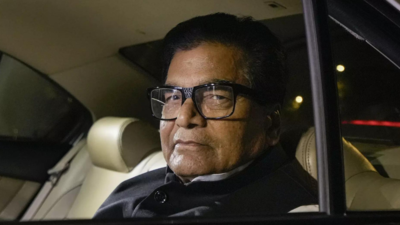
Yadav’s statements have ignited a widespread debate after being circulated on social media. In a video clip, he appeared to question Chandrachud’s comments about seeking divine intervention for a solution to the Ram Mandir dispute. Yadav suggested that such remarks from the head of the judiciary could compromise the institution’s objectivity, provoking strong reactions, particularly from BJP members who have demanded legal action against him for undermining the judiciary. Yadav, however, countered the allegations, stating that his remarks were taken out of context and not intended as a direct attack on the CJI.
The political tensions surrounding the Samajwadi Party leader’s comments intensified as senior BJP officials called for punitive measures against Yadav. Legal experts within the BJP and political commentators have condemned his remarks, asserting that Yadav’s rhetoric was inappropriate and could be seen as contemptuous of judicial authority. Some within the party are considering legal avenues to address what they perceive as an affront to the judiciary’s independence.
The controversy comes at a sensitive time for the SP, with senior leaders Akhilesh Yadav and Dimple Yadav engaged in a high-stakes by-election campaign in Mainpuri, Uttar Pradesh. Despite the controversy swirling around Ram Gopal Yadav, the party leadership has opted for a measured response. While Akhilesh Yadav has refrained from directly commenting on the incident, insiders suggest that the party is focused on maintaining unity amidst the election battle. The by-election in Mainpuri is crucial for the SP, and party officials are working to ensure the incident does not derail their efforts.
On the legal front, while no formal charges have been filed against Yadav yet, the BJP’s legal cell has already raised the possibility of initiating contempt proceedings. Legal experts remain divided over the merits of such action, with some arguing that while Yadav’s comments were provocative, proving contempt of court could be legally complex, especially if his defense hinges on the context in which the remarks were made. Yadav has since urged that an independent investigation be conducted into the matter to clarify his stance, emphasizing that he respects the judiciary but disagrees with the tone of Chandrachud’s remarks.
This is not the first time a political figure has faced scrutiny over remarks perceived as critical of the judiciary. In an environment where political rhetoric often spills over into legal disputes, Yadav’s comments have added fuel to an ongoing debate about the boundaries of free speech in relation to judicial authority. Political analysts note that this incident underscores the growing tensions between political leaders and judicial institutions, as courts have become increasingly central to resolving contentious political and social issues.
Amid the growing calls for action against Yadav, the broader political landscape in Uttar Pradesh is also being affected. The Samajwadi Party has a history of clashing with the ruling BJP over ideological and political differences, and this incident is likely to deepen the rift between the two parties. With Yadav’s remarks now dominating political discourse, the BJP has seized the opportunity to position itself as the defender of judicial independence, while casting the SP as an adversary to the constitutional process. This narrative is particularly significant as the BJP looks to strengthen its standing in the politically volatile region ahead of the 2024 general elections.
The controversy has also sparked reactions from legal professionals and civil society groups. Some have criticized Yadav’s comments as emblematic of a broader trend of political figures undermining judicial credibility for personal or partisan gain. Others argue that the incident highlights the need for clearer guidelines on the limits of public commentary on judicial matters, particularly by elected officials and political leaders. The debate over Yadav’s remarks is likely to continue, with legal experts suggesting that the outcome of any potential contempt proceedings could have lasting implications for the relationship between the judiciary and the political class.
